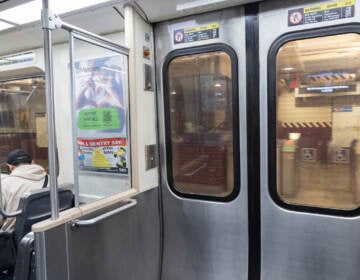February 17: Forensic waste analysis | Bike ramp for Ben Franklin Bridge | Elkins Estate

In the U.S., consumers throw away 27 million tons of food waste a year. The Natural Resources Defense Council is digging through trash and recruiting households in different cities to log what and how much we throw away. The data could offer a toolkit for “entrepreneurs and policymakers trying to figure out how to bag waste on a local level.” CityLab digs into NRDC’s forensic analysis of commercial and residential waste.
Speaking of waste, the New York Times profiles Charles Vigliotti, the ‘Compost King,’ a waste hauler turned fertilizer magnate that has made his fortune in transforming food waste. With a huge contract from the city, Vigliotti is poised to build and operate a plant that can handle thousands of tons of food waste daily.
The new owner of the now shuttered Althea Gibson Community Education and Tennis Center in West Poplar is seeking a variance to convert the community center into gas station complete with a minimart and café. Inga Saffron writes that while the community and the city’s planning director, Anne Fadullon, oppose the project, the failure of the community center and rise of an auto-centric proposal speaks to the neighborhood’s ill-fated low-density layout, a legacy of years when Philadelphia was pondering how to shrink instead of grow.
The Elkins Estate in Cheltenham speaks to the grandeur, extravagance, and opulence of the Gilded Age. The rolling, 42-acre property at 1750 Ashbourne Road with several neoclassical mansions, has long sat vacant and without a capable steward able to maintain and preserve the manor in a financially sustainable way. Hidden City takes us through the Elkins Estate’s overwhelming splendor, its owners, and a future that remains “remains shrouded in uncertainty.”
The Delaware River Port Authority has received $3.78 million grant from Federal Highway Administration to help fund a bicycle and ADA-accessible ramp onto the Ben Franklin Bridge from Camden. The Courier Post covers DRPA’s first grant from the agency “since the law was changed to allow toll agencies to receive federal highway funding.”
Last month, the state Department of Environmental Protection forced the Pittsburgh Water and Sewer Authority to tell 100,000 Pittsburghers to boil their water. The Allegheny County Health Department, tasked to the PWSA and 35 other community water systems, has shared with the Pittsburgh Post-Gazette that DEP inspectors did not inform local municipalities the state was reviewing operations until the boil-water order.
WHYY is your source for fact-based, in-depth journalism and information. As a nonprofit organization, we rely on financial support from readers like you. Please give today.







